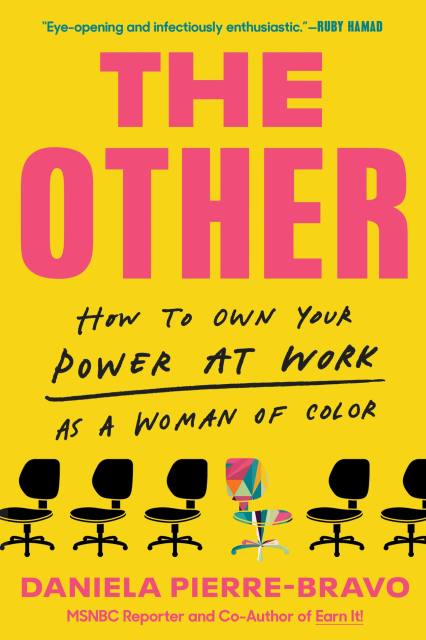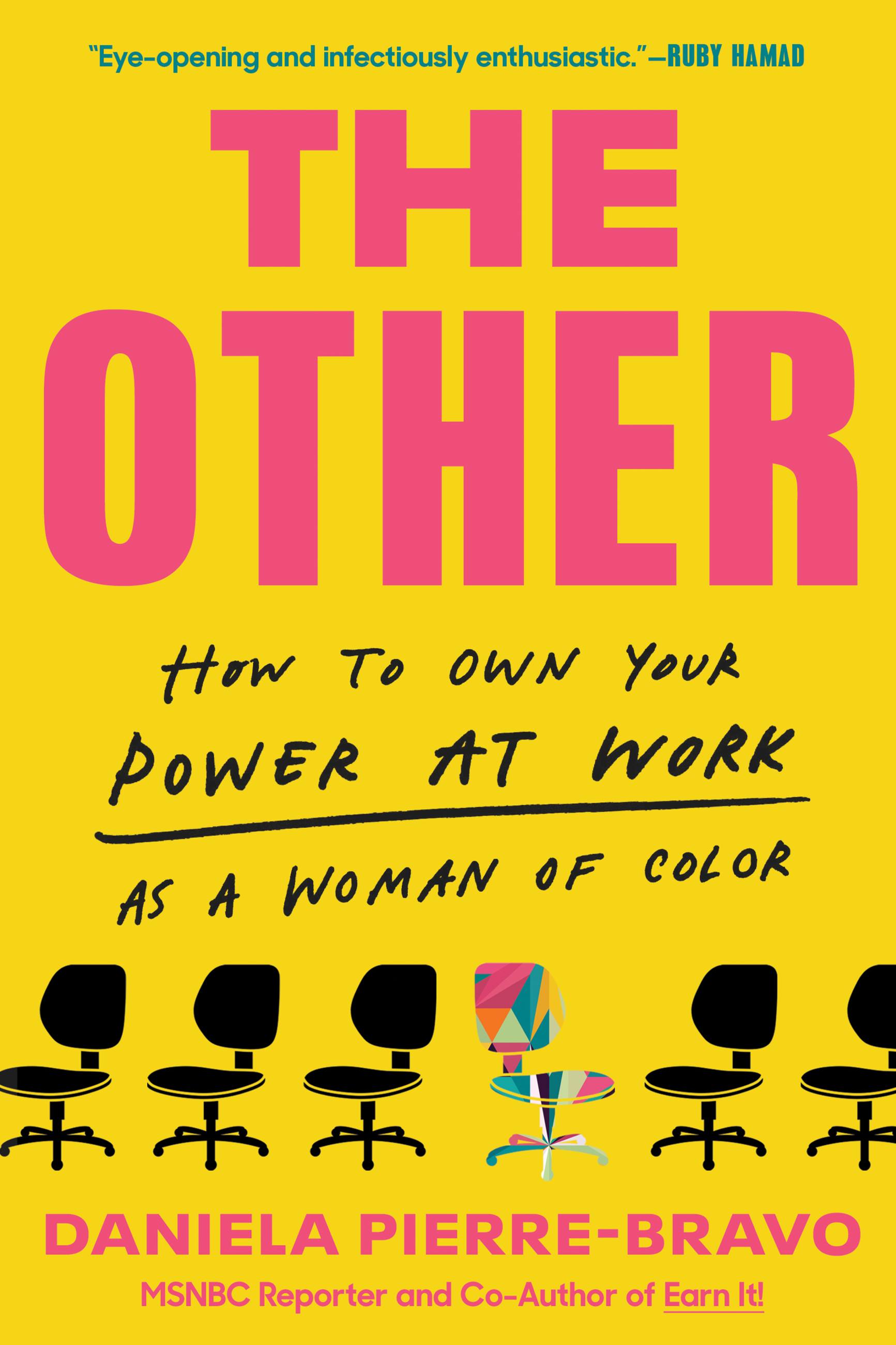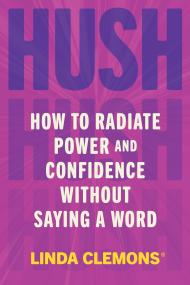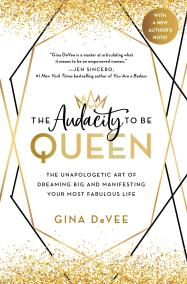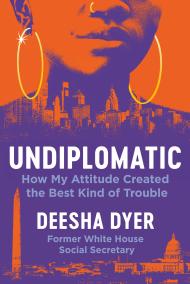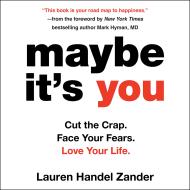By clicking “Accept,” you agree to the use of cookies and similar technologies on your device as set forth in our Cookie Policy and our Privacy Policy. Please note that certain cookies are essential for this website to function properly and do not require user consent to be deployed.
The Other
How to Own Your Power at Work as a Woman of Color
Contributors
Formats and Prices
- On Sale
- Aug 23, 2022
- Page Count
- 256 pages
- Publisher
- Legacy Lit
- ISBN-13
- 9780306925450
Price
$11.99Price
$15.99 CADFormat
Format:
- ebook $11.99 $15.99 CAD
- Audiobook Download (Unabridged) $24.99
- Trade Paperback $18.99 $23.99 CAD
This item is a preorder. Your payment method will be charged immediately, and the product is expected to ship on or around August 23, 2022. This date is subject to change due to shipping delays beyond our control.
Buy from Other Retailers:
This important book focuses on how women of color, children of immigrants, and other minoritized groups are predisposed to workplace imposter syndrome—and charts a path forward for self-advocacy and advancement.
For women of color and children of immigrants, who are the “the other” at work, there's a different threshold of belonging that creates a false feeling of inadequacy. It can lead to being overwhelmed, overworked, and overlooked. The Other shatters the unspoken expectations for you to stay in your lane and gives you the tools to build unshakable confidence and a career that excels–on your own terms.
Bestselling author and MSNBC reporter Daniela-Pierre Bravo spent many years undocumented and in the shadows as an immigrant from Chile, working odd jobs to pay her way through school. Like many other women of color she became an expert shape shifter in order to chameleon her way around professional environments that felt out of reach. When Daniela became a DACA recipient, she finally felt that she’d made it, rising through the ranks in her career. But she quickly realized that no matter how much success she achieved, she always felt she had to prove her worth as “the other.”
In The Other, Daniela shares her journey and those of other women to help you recognize your power in the workplace outside of the white gaze. She drives you to reshape the way you think about career advancement without losing your sense of identity and helps you see how to use your differences as an advantage. Smart, revealing, and loaded with practical steps, The Other is a framework for how to effectively advocate for yourself, become your biggest believer, claim the spaces in your career that are rightfully yours.
-
“An inspirational professional guidebook for women of color…The author’s conversational tone and hard-won experience lend her voice a compassion and clarity that readers will find both useful and comforting, and her advice is practical and well-reasoned.”Kirkus
-
“The Other is a love letter to every women of color who has sacrificed her authentic voice and talents for a false sense of safety. No longer do we have to be reactive to our work environment. It’s time to rise up and go after what we deserve!”Minda Harts, author of The Memo and Right Within
-
“A powerful, compelling read. In these pages, Daniela is the guide and mentor that many women look for and need when facing challenges at work. She mobilizes women to embrace their power, negotiate for more, and to possess their own space, not just to succeed but to be successful. I could not be prouder of her journey and achievements.”Mika Brzezinski, Co-Host of Morning Joe and New York Times bestselling author
-
“If I’d had this book earlier in my career, I probably would have spent less time crying alone in the office bathroom. Essential advice from someone who has navigated these traps and hurdles with agility and grace.”Alicia Menendez, author of The Likeability Trap
-
"The Other is an honest account of what it’s like to feel marginalized in a traditional American workplace. Pierre-Bravo’s story of rising the ranks in her career is engaging, useful, and—perhaps best of all—validating. Its underlying message of community and support left me feeling hopeful about the future of work.Kristin Wong, author of Get Money
-
“Equal parts head and heart, The Other not only welcomes women of color to the table, but tells us how to confidently take ownership of that all-important seat. Compelling and full of advice that works, this book should be a staple in workplaces across the nation for women of color.”Bola Sokunbi, author of Clever Girl Finance
-
"The Other so beautifully encapsulates the challenges and opportunities for those with marginalized identities in the workplace. Danielaprovides a triumphant path forward for success."Stefanie K. Johnson, bestselling author of Inclusify
-
"The Other expands the view and dialogue on the realities of women of color in the workplace. Daniela Pierre-Bravo takes the experiences of women who feel othered out of the margins and places them squarely in the center to be underscored, understood, and unhidden."Tammy Lewis Wilborn, PhD, author of Playing A New Game
-
"A question that readers often ask me is, ‘What can women of color do to combat the unique challenges we face in the workplace?’ Here at last, Daniela Pierre-Bravo provides some real answers. Generously sharing her own extraordinary journey from undocumented intern to world-class television journalist, Pierre-Bravo reminds us that, despite the outside forces working against us, there are always elements in our stories that we can and must dictate for ourselves. Eye-opening and infectiously enthusiastic, Pierre-Bravo deserves praise for her honesty and desire to help others succeed."Ruby Hamad, author of White Tears/Brown Scars
-
“Reading The Other by Daniela Pierre-Bravo was like turning the camera on and watching my own life experiences be reflected back at me. A poignant manifesto on how to close the door on imposter syndrome and advocate for yourself and your successes. At times harrowing, but hopeful, The Other is a book that should be gifted to anyone who wants to work in a corporate space and should be required reading for people managers, especially those who manage BIPOC people.”Saraciea J. Fennell, editor of Wild Tongues Can’t Be Tamed
-
“I could not put this book down! Daniela Pierre-Bravo has written an energizing, eye-opening manifesto for women of color to own our power, urging us to recognize how our hurdles can be channeled to become our superpower. Pierre-Bravo’s story of her incredible rise from an undocumented immigrant to one of the most recognizable faces on television is riveting. Even more so, how this book creates a playbook and community for everyone who has felt like the “other” to embrace, not shun what sets us apart. Read it again and buy copies for all the aspiring leaders in your life!”Ruchika Tulshyan, author of Inclusion on Purpose
Newsletter Signup
By clicking ‘Sign Up,’ I acknowledge that I have read and agree to Hachette Book Group’s Privacy Policy and Terms of Use
